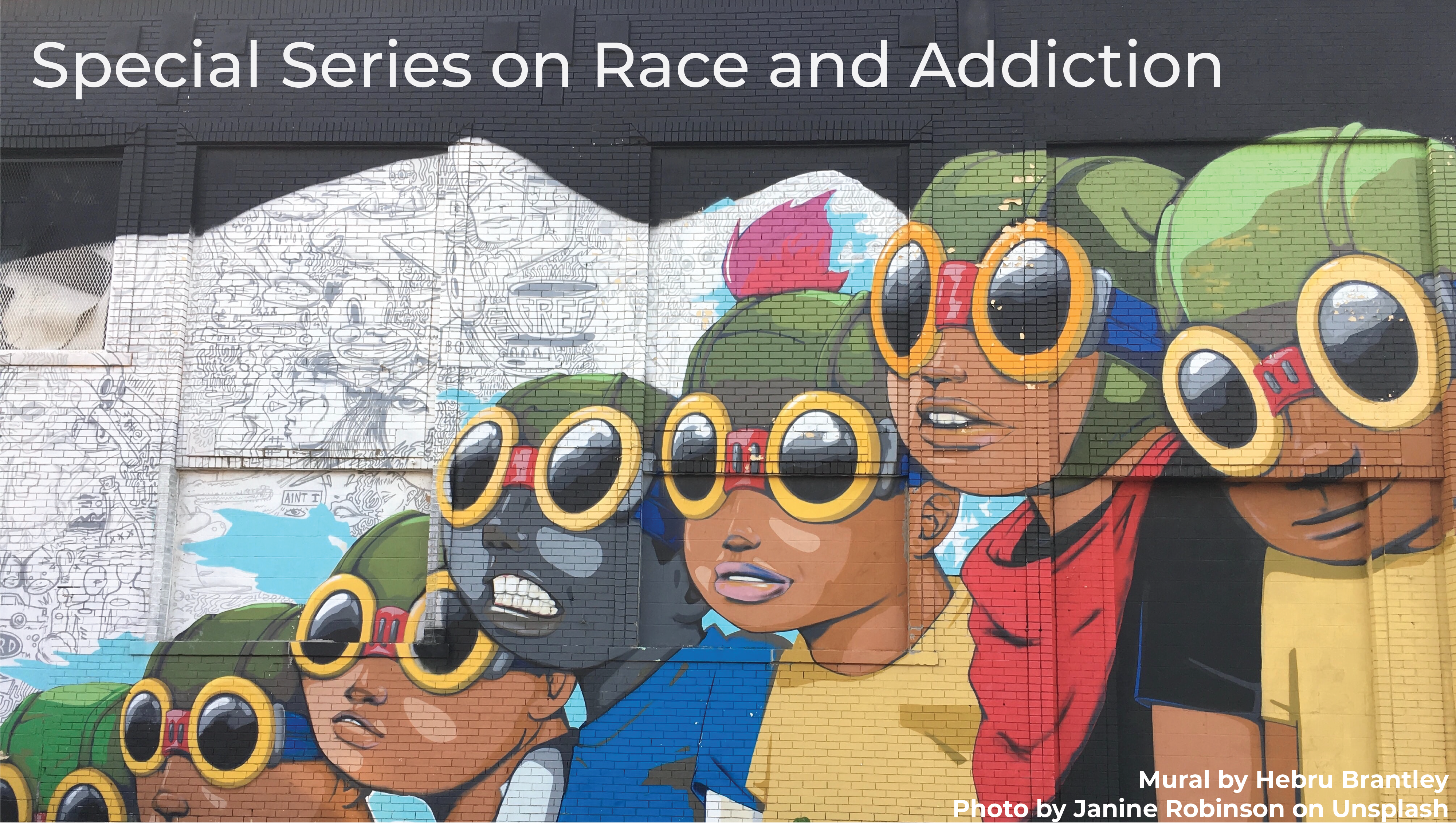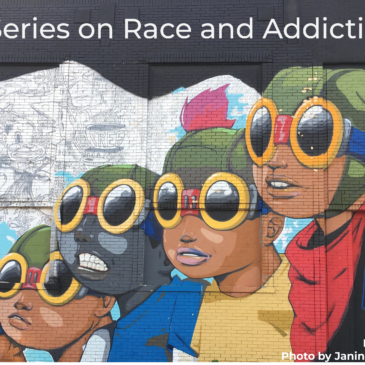 On May 25th, 2020, the dual public health threats of the COVID-19 pandemic and racism collided in the United States. Since then, activists, academics, politicians, government representatives, and citizens have supported essential steps toward anti-racism while navigating the ongoing pandemic. In brief, anti-racism refers to engaging in purposeful efforts to oppose racism, especially those efforts that might change racist policies and ideas. One pathway to anti-racism is dedicating research programs to better understand the psychology of racism in all its contexts. We are privileged to have The BASIS as a worldwide platform for our thoughts and to highlight important research that clarifies the devastating impacts of racism. Because there is no time like the present to start anti-racism work, this month The BASIS will feature a special series on race and addiction, addressing addiction-related discrimination, social determinants of health, health equity, and race.
On May 25th, 2020, the dual public health threats of the COVID-19 pandemic and racism collided in the United States. Since then, activists, academics, politicians, government representatives, and citizens have supported essential steps toward anti-racism while navigating the ongoing pandemic. In brief, anti-racism refers to engaging in purposeful efforts to oppose racism, especially those efforts that might change racist policies and ideas. One pathway to anti-racism is dedicating research programs to better understand the psychology of racism in all its contexts. We are privileged to have The BASIS as a worldwide platform for our thoughts and to highlight important research that clarifies the devastating impacts of racism. Because there is no time like the present to start anti-racism work, this month The BASIS will feature a special series on race and addiction, addressing addiction-related discrimination, social determinants of health, health equity, and race.
The BASIS previously has amplified research about race and addiction. In prior special series, we have highlighted disparities in the experience and treatment of addiction and addiction and recovery among tribal communities. Other standalone research reviews have addressed, for example, marijuana use among Latino youth, barriers to treatment for substance use problems, and racial disparities in opioid addiction treatment. Notable editorials have included thought pieces related to the role of health equity in addiction treatment and engagement and empowerment in addiction-related public health. But, there is more to do.
To bring additional attention to race, discrimination, and addiction, our special series begins with ASHES, and reviews research indicating that when providing outpatient psychiatric care, physicians are less likely to screen Black patients for cigarette smoking than White patients–despite increased need for this screening among Black patients. Other research reviews include an issue of STASH that discusses overdose prevention among a mostly Black/Hispanic sample of people who have been released from incarceration, a WAGER that describes patterns of gambling initiation among African American and White teens, and a DRAM that summarizes research about racial discrimination as a stressor that may put African Americans at risk for alcohol use and related problems.
We supplement these research reviews with editorials from our Division on Addiction team members, Ms. Vanessa Graham and Ms. Karen Amichia, and editorials from experts on this issue from outside the Division, Ms. Margaret Knapp and Dr. Sarah Matsuzaka, and Mr. Malakai Hart and Dr. Carl Hart.
Welcome to our special series on Race and Addiction.
— Debi A. LaPlante, Ph.D., Director, Division on Addiction at Cambridge Health Alliance, a Harvard Medical School teaching hospital; Assistant Professor, Harvard Medical School
— Heather M. Gray, Ph.D., Director of Academic Affairs, Division on Addiction at Cambridge Health Alliance, a Harvard Medical School teaching hospital, Instructor, Harvard Medical School
Acknowledgments
During the past five years, Debi A. LaPlante has served as a paid grant reviewer for the National Center for Responsible Gaming (NCRG; now International Center for Responsible Gaming), received travel funds, speaker honoraria, and a scientific achievement award from the ICRG, has received speaker honoraria and travel support from the National Collegiate Athletic Association, received honoraria funds for preparation of a book chapter from Universite Laval, received publication royalty fees from the American Psychological Association, and received course royalty fees from the Harvard Medical School Department of Continuing Education. Dr. LaPlante is a non-paid member of the New Hampshire Council for Responsible Gambling.
Within the past three years, Heather Gray has served as a paid grant reviewer for the National Center for Responsible Gaming (NCRG; now International Center for Responsible Gaming), received travel funds from the Tung Wah Group of Hospitals/The Hong Kong Jockey Club Charities Trust, received honoraria funds for preparation of a book chapter from Universite Laval, received travel funds and honoraria from the NCRG, and received course royalty fees from the Harvard Medical School Department of Continuing Education. Dr. Gray is a non-paid member of the New Hampshire Council for Responsible Gambling.
The Division on Addiction currently receives funding from the Addiction Treatment Center of New England via SAMHSA; The Foundation for Advancing Alcohol Responsibility (FAAR); DraftKings; the Gavin Foundation via the Substance Abuse and Mental Health Services Administration (SAMHSA); GVC Holdings, PLC; The Healing Lodge of the Seven Nations via the Indian Health Service with funds approved by the National Institute of General Medical Sciences, National Institutes of Health; The Integrated Centre on Addiction Prevention and Treatment of the Tung Wah Group of Hospitals, Hong Kong; St. Francis House via the Massachusetts Department of Public Health Bureau of Substance Addiction Services; and the University of Nevada, Las Vegas via MGM Resorts International. During the past 5 years, the Division on Addiction has also received funding from Aarhus University Hospital with funds approved by The Danish Council for Independent Research; ABMRF – The Foundation for Alcohol Research; Caesars Enterprise Services, LLC; the David H. Bor Library Fund, Cambridge Health Alliance; DraftKings; Fenway Community Health Center, Inc.; Heineken USA, Inc.; Massachusetts Department of Public Health, Bureau of Substance Addiction Services; Massachusetts Gaming Commission, Commonwealth of Massachusetts; National Center for Responsible Gaming; and University of Nevada, Las Vegas via MGM Resorts International.





Jamie Juviler June 2, 2020
Thank you for this report. I look forward to reading your articles this month and staying informed on this crucial topic.